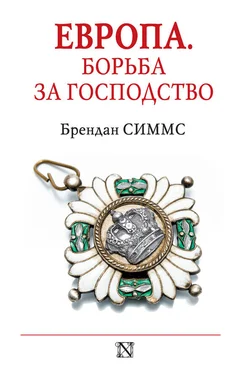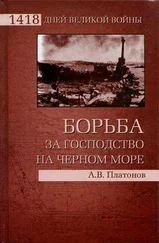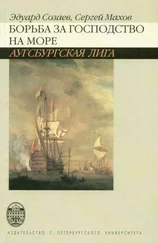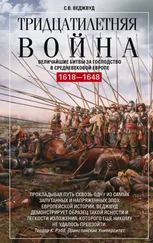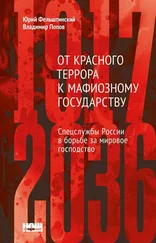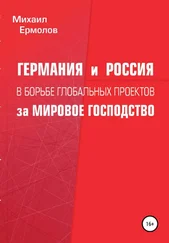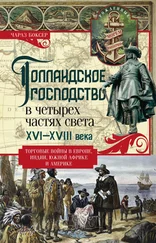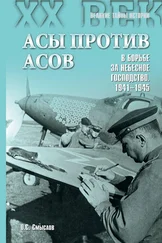По имени премьер-министра Франции до июля 1948 г . Примеч. ред.
John Callaghan, ‘The Cold War and the march of capitalism, socialism and democracy’, Contemporary British History, 15, 3 (2001), pp. 1–25 (quotation p. 4).
Dianne Kirby, ‘Divinely sanctioned. The Anglo-American Cold War alliance and the defence of western civilisation and Christianity, 1945–48’, Journal of Contemporary History, 35, 3 (2000), pp. 385–412 (quotation p. 405).
Peter Hennessy, The secret state. Whitehall and the Cold War (London, 2002), and now Christopher Andrew, The defence of the realm. The authorized history of MI5 (London, 2010).
Термин американской политики, обозначающий государственный сектор в широком значении . Примеч. ред.
Peter Clarke, ‘Labour’s beachmaster’, London Review of Books, 23.1.2003, p. 25.
Aaron L. Friedberg, In the shadow of the garrison state. America’s anti-statism and its Cold War grand strategy (Princeton, 2000), especially pp. 340–45.
Mary L. Dudziak, Cold War civil rights. Race and the image of American democracy (Princeton and Oxford, 2000), p. 29.
ibid., pp. 2–3 and passim.
Maria Höhn and Martin Klimke, A breath of freedom. The civil rights struggle, African American GIs and Germany (Basingstoke, 2010), pp. 56 and 76.
Geoffrey Marston, ‘The United Kingdom’s part in the preparation of the European Convention on Human Rights, 1950’, International and Comparative Law Quarterly, 42 (1993), pp. 796–826.
Благодарю Томаса Проберта за привлечение моего внимания к этому факту.
Timothy Snyder, Bloodlands. Europe between Hitler and Stalin (New York, 2010), p. 366.
Jonathan Brent and Vladimir P. Naumov, Stalin’s last crime. The plot against the Jewish doctors, 1948–1953 (London, 2003), especially pp. 183–4.
Kevin McDermott, ‘Stalinist terror in Czechoslovakia: origins, processes, responses’, in McDermott and Stibbe (eds.), Stalinist terror in eastern Europe, pp. 98–118, especially pp. 101–11.
Kathryn Weathersby, The Soviet aims in Korea and the origins of the Korean War, 1945–1950. New evidence from Russian archives, Cold War International History Project, Working Paper No. 8 (Washington, DC, 1993).
Michael M. Sheng, Battling western imperialism. Mao, Stalin, and the United States (Princeton, 1997), pp. 187–96, (работа на основе документов из китайских архивов), and Lorenz M. Luethi, The Sino-Soviet split. Cold War in the communist world (Princeton, 2008), pp. 345–52.
Tony Smith, Thinking like a communist. State and legitimacy in the Soviet Union, China, and Cuba (New York, 1987), pp. 191–2.
Walter Lafeber, America, Russia and the Cold War, 1945–1996, 8th edn (New York, 1997), p. 96.
Robert J. McMahon, ‘The Cold War comes to south-east Asia’, in McMahon and Thomas G. Paterson (eds.), The origins of the Cold War (Boston, 1999), pp. 227–43.
William Stueck, The Korean War. An international history (Princeton, 1995), p. 373.
Экономическое чудо ( нем .) . Примеч. ред.
John Gillingham, European integration, 1950–2003. Superstate or new market economy? (Cambridge, 2003) p. 27.
Christopher Gehrz, ‘Dean Acheson, the JCS and the “single package”: American policy on German rearmament, 1950’, Diplomacy and Statecraft, 12, 1 (2001), pp. 135–60, especially pp. 137 and 141–3 (Acheson quotation p. 141).
Kai Bird, The chairman. John J. McCloy and the making of the American establishment (New York, 1992), p. 337.
Richard J. Aldrich, ‘OSS, CIA and European unity: the American Committee on United Europe, 1948–60’, Diplomacy and Statecraft, 8, 1 (1997), pp. 184–227. Благодарю Дэвида Джио за это указание.
Arch Puddington, Broadcasting freedom. The Cold War triumph of Radio Free Europe and Radio Liberty (Lexington, 2001), pp. 73–4, on the importance on the Munich location, and Scott Lucas, Freedom’s war. The American crusade against the Soviet Union (Manchester, 1999), especially p. 8.
Volker R. Berghahn, America and the intellectual cold wars in Europe. Shepard Stone between philanthropy, academy, and diplomacy (Princeton and Oxford, 2001), pp. 108–51.
Samuel Moyn, The last Utopia. Human rights in history (Cambridge, Mass., and London, 2010), pp. 78–9 on this.
Alan S. Milward, The United Kingdom and the European Community. Vol. I: The rise and fall of a national strategy (London, 2002).
A. W. Lovett, ‘The United States and the Schuman Plan. A study in French diplomacy, 1950–1952’, Historical Journal, 39, 2 (1996), pp. 425–55. See A. W. Lovett, ‘The United States and the Schuman Plan. A study in French diplomacy, 1950–1952’, Historical Journal, 39, 2 (1996), pp. 425–55.
Kevin Ruane, The rise and fall of the European Defence Community. Anglo-American relations and the crisis of European defence, 1950–55 (Basingstoke, 2000).
Gillingham, European integration, pp. 29–30.
Vladislav Zubok, ‘The Soviet Union and European integration from Stalin to Gorbachev’, Journal of European Integration History, 2, 1 (1996), pp. 85–98, especially pp. 85–8.
Christoph Bluth, The two Germanies and military security in Europe (Basingstoke, 2002), p. 13.
Dirk Spilker, The East German leadership and the division of Germany: patriotism and propaganda, 1945–53 (Oxford, 2006).
Hans-Peter Schwarz, Konrad Adenauer. A German politician and statesman in a period of war, revolution and reconstruction. Vol. I: From the German Empire to the Federal Republic, 1876–1952 (Providence and Oxford, 1995), pp. 649–63.
Ориентация на Запад ( нем .) . Примеч. ред.
Ronald Smelser and Edward J. Davies, The myth of the eastern front. The Nazi—Soviet war in American popular culture (Cambridge, 2008), pp. 46–89.
Jeffrey Herf, Divided memory. The Nazi past in the two Germanys (Cambridge, Mass., 1997).
Mark Kramer, ‘The early post-Stalin succession struggle and upheavals in east central Europe: internal—external linkages in Soviet policy making’, Journal of Cold War Studies, 1, 1 (1999), p. 12.
Читать дальше
Конец ознакомительного отрывка
Купить книгу
